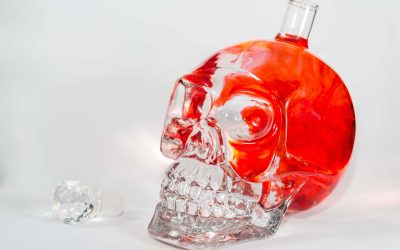Here is a collection of the best advice I have been given over the last 14 months and some of my own personal reflections on how to survive early sobriety and the emotional roller coaster. I no longer had that society prescribed “medication”, that crutch that I had been using for 20 years to help me in many different areas of my life. If these emotions become excessive, they can hold you back from recovery.
- Being drug-free promotes trust, leading to healthier personal and professional relationships.
- The more you indulge in your addiction, the better you feel, and the better you feel, the more you want.
- A modified version of the Alcoholics Anonymous Affiliation Scale was used to assess 12-step involvement groups (Humphreys, Kaskutas & Weisner, 1998).
- It may be best to tell a close friend of the intent to eliminate alcohol for a month, for example, just to try it out.
- As an extrovert, I was terrified of what losing alcohol would do to my social life.
Learning stress-reducing techniques like meditation, yoga, or regular physical exercise can help manage triggers. This self-discovery and external acknowledgment from peers and loved ones solidify their enhanced sense of value and self-worth. Over time, the positive feedback loop of accomplishments and recognition can profoundly transform their overall self-perception.
You’ll be healthier.
Another powerful approach is educating oneself about the nature of addiction, which provides insights into the individual’s challenges and underscores the need for a supportive environment. Friends and family https://ecosoberhouse.com/ can bolster someone’s drug-free decision by offering understanding, encouragement, and empathy. Open communication is vital; asking about their needs and being an active listener can foster trust.

Self-love and addiction are two things that can never go hand-in-hand. Our protocol includes measures of social support for sobriety (Zwyak & Longabaugh, 2002) and involvement in 12-step groups (Humphreys, Kaskutas & Weisner (1998). To assess for benefits of living an alcohol and drug free lifestyle DSM psychiatric diagnostic categories at baseline we used the Psychiatric Diagnostic Screening Questionnaire (PDSQ) (Zimmerman & Mattia, 1999). In addition to the physical benefits, abstaining from alcohol can also improve your mental health.
On Traveling Sober
When the occasional Friday night drinking becomes a toxic habit and goes out of hand, it also makes a person unstable financially because most of their money is spent on drinking. People often lose their jobs after starting alcohol abuse which causes them to face financial struggles and even go homeless if they don’t get help in time. One of the best ways to stay drug-free is to give yourself as many reasons as possible to remain sober. Investing in others can be a very sustainable and fulfilling reason. Volunteer to spend your time and talent helping a cause you care about, or share your story and experiences with others who may be a step or two behind you in the addiction recovery process. Choosing a drug-free lifestyle can bring long-term physical health benefits, enhance meaningful relationships and create a sense of happiness and satisfaction.

To help you out, we’ve come up with a list of 10 benefits of living a drug-free lifestyle. We hope it will inspire you as you begin your recovery journey. The company you keep and whether other people drink alcohol around you will also affect your drinking habits. Being alcohol-free is a long journey and keeping the company of like-minded people will make it a success.
0 Comments